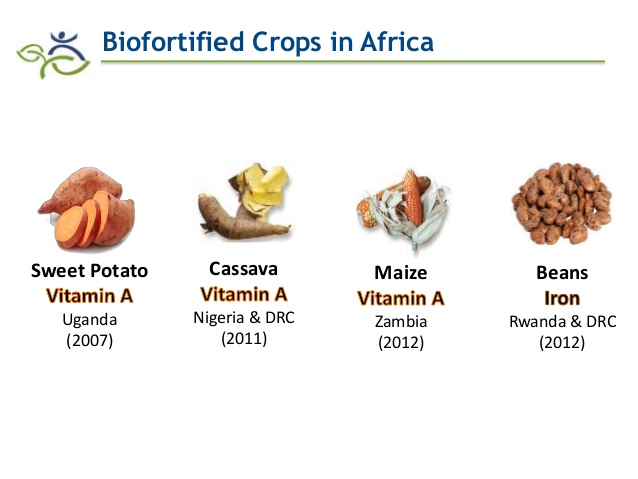HarvestPlus Nigeria on Thursday, May 9, 2019 promised to provide bio-fortified foods for over 200 million Nigerians in rural communities and malnourished vulnerable by 2030.

The Country Manager of HarvestPlus, Dr Paul Ilona, made the assertion while speaking with members of the Food and Agriculture Writers Organisation of Nigeria (FAWON) during a training session on Bio-Fortified Foods for malnourished Nigerians in Ibadan, Oyo State.
Bio-fortification is a process of fortifying crops with nutrients like vitamins to fight hidden hunger.
HarvestPlus improves nutrition and public health in Nigeria by promoting cassava and maize that provides more vitamin A in the diet. We work with over 60 partners drawn from government, business, and civil society.
It supports the National Root Crops Research Institute (NRCRI) to breed, test, and release vitamin A cassava developed through our partnership with the International Institute of Tropical Agriculture (IITA). Cassava is one of the most widely consumed food staples in Nigeria.
Ilona said that, in another 10 years from now, Nigeria’s population would have increased by about 40 per cent hence, providing bio-fortified foods to 200 million people by 2030 would just be reaching 70 or 80 per cent of Nigerians.
Ilona said that it was not an imposed target but an estimation of how the firm intended to affect the feeding and nutrition pattern of Nigerians with bio-fortified foods like maize, cassava and orange-fleshed potato.
“The organisation globally, is targeting one billion people but HavestPlus Nigeria is tasking itself to reach 200 million out of the number by 2030.
“To reach 200 million persons is not a joke, the question is not around supply, farmers are producing and the deliveries of raw material to industries remain the primary challenge.
“If the railway system in Nigeria is working, it would have been a different story, our railway system is not working, the road networks are terrible, and the cost of transportation is high.
“By the time you move vitamin A maize from Kaduna to Lagos and the trailer is charging you N400,000, how much is the raw materials itself?
“We know clearly that we have an environment that is faulty for agricultural development in Nigeria, but we should be able to operate notwithstanding,’’ he said.
Ilona said that the strategies the organistion planned to adopt are to engage many more medium and large-scale food processors who will become off-takers for the millions of farmers who were cultivating bio-fortified crops.
“We think that if we strengthen that partnership it is going to add a lot more value. We have identified quite a number of multinationals and national food companies in Nigeria who are bio-fortified-friendly.
“We will ensure that industries have access to bio-fortified raw materials and the products find their way to our target population.
“Our target population may not be those living in Ikeja or VGC. We are targeting the most vulnerable of us.
“We have to move the products from the industry to where we have acute or serious malnutrition so that we can truly contribute to alleviating nutrition deficit and eliminate ailments associated with malnutrition and other challenges in the country,’’ he said.
By Itohan Abara-Laserian
